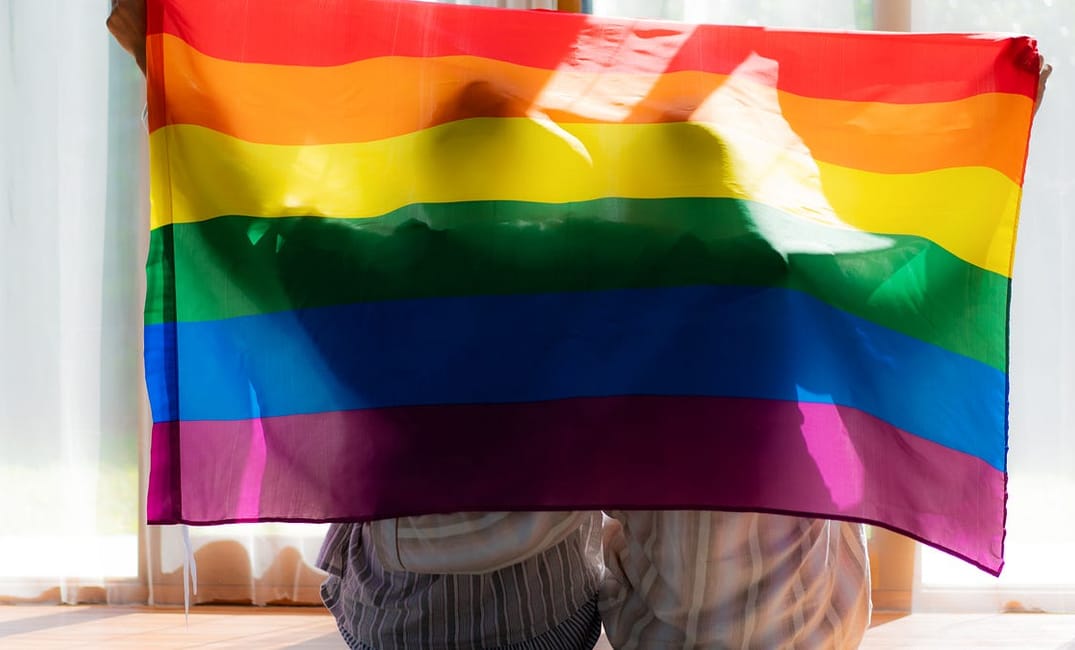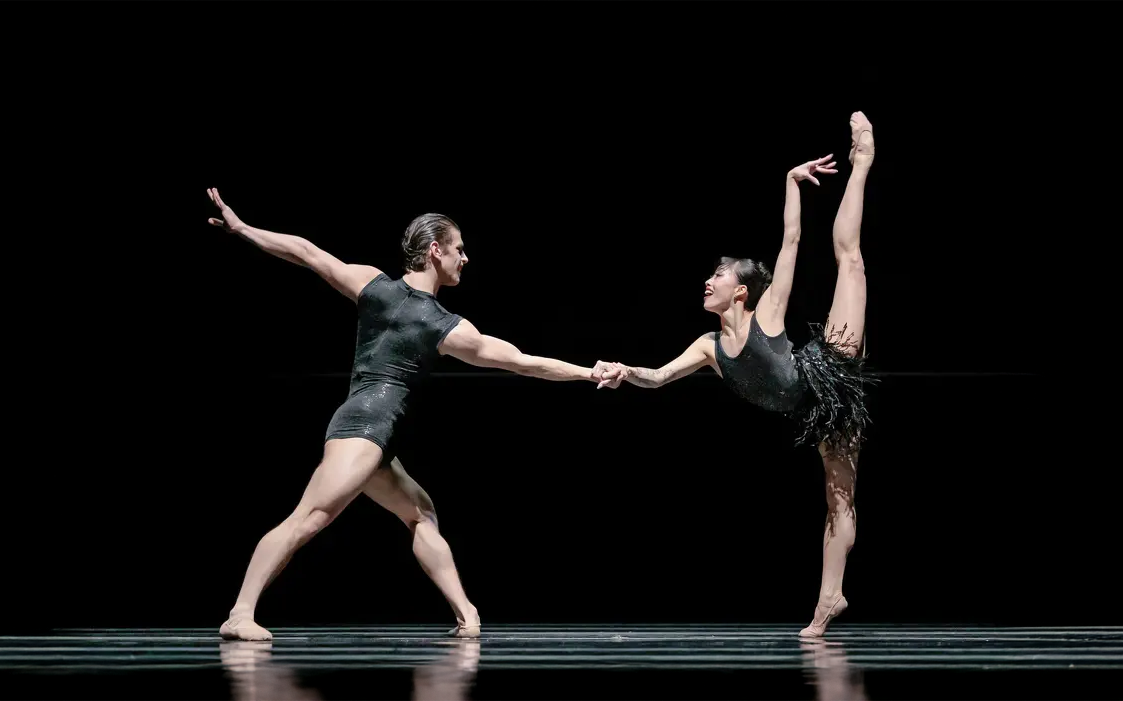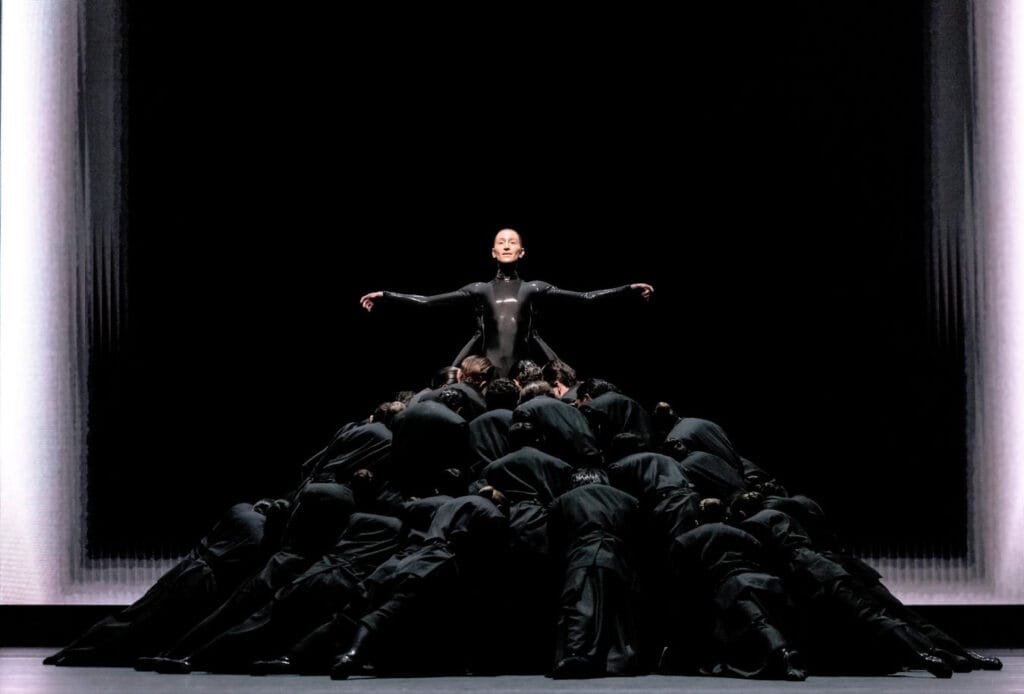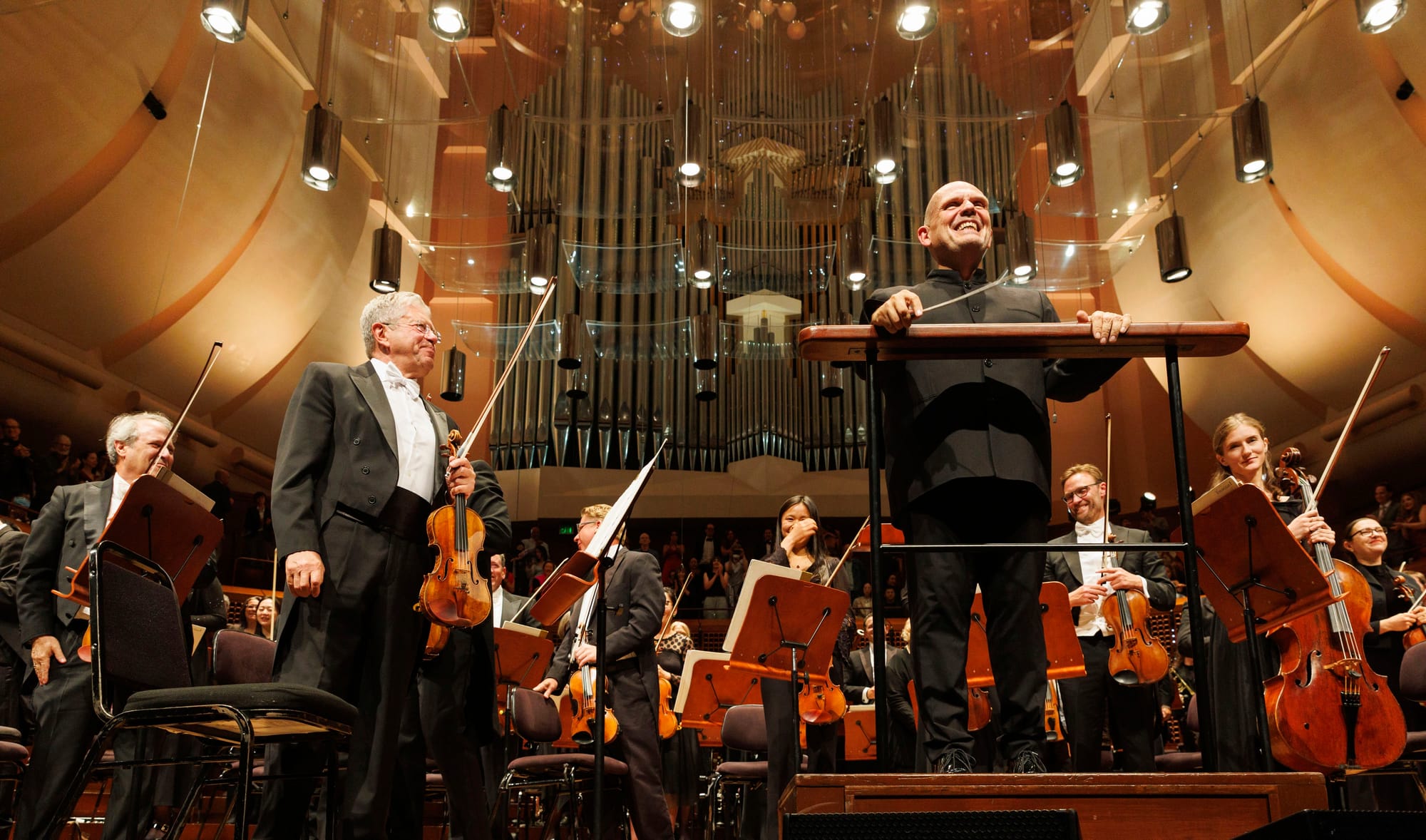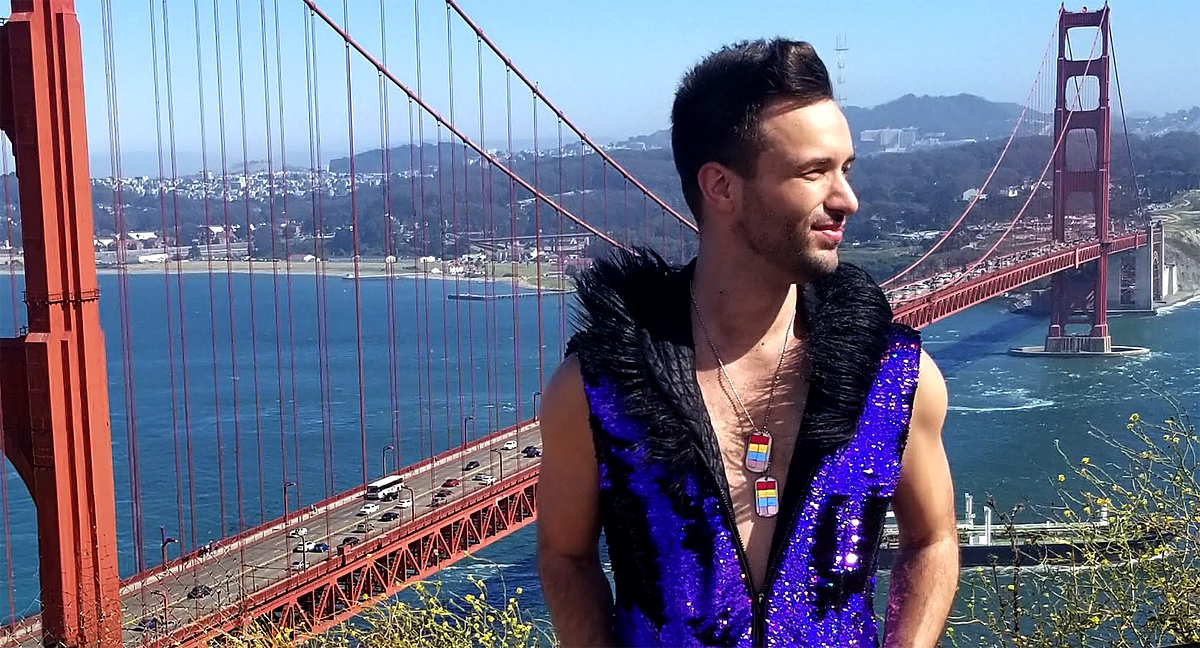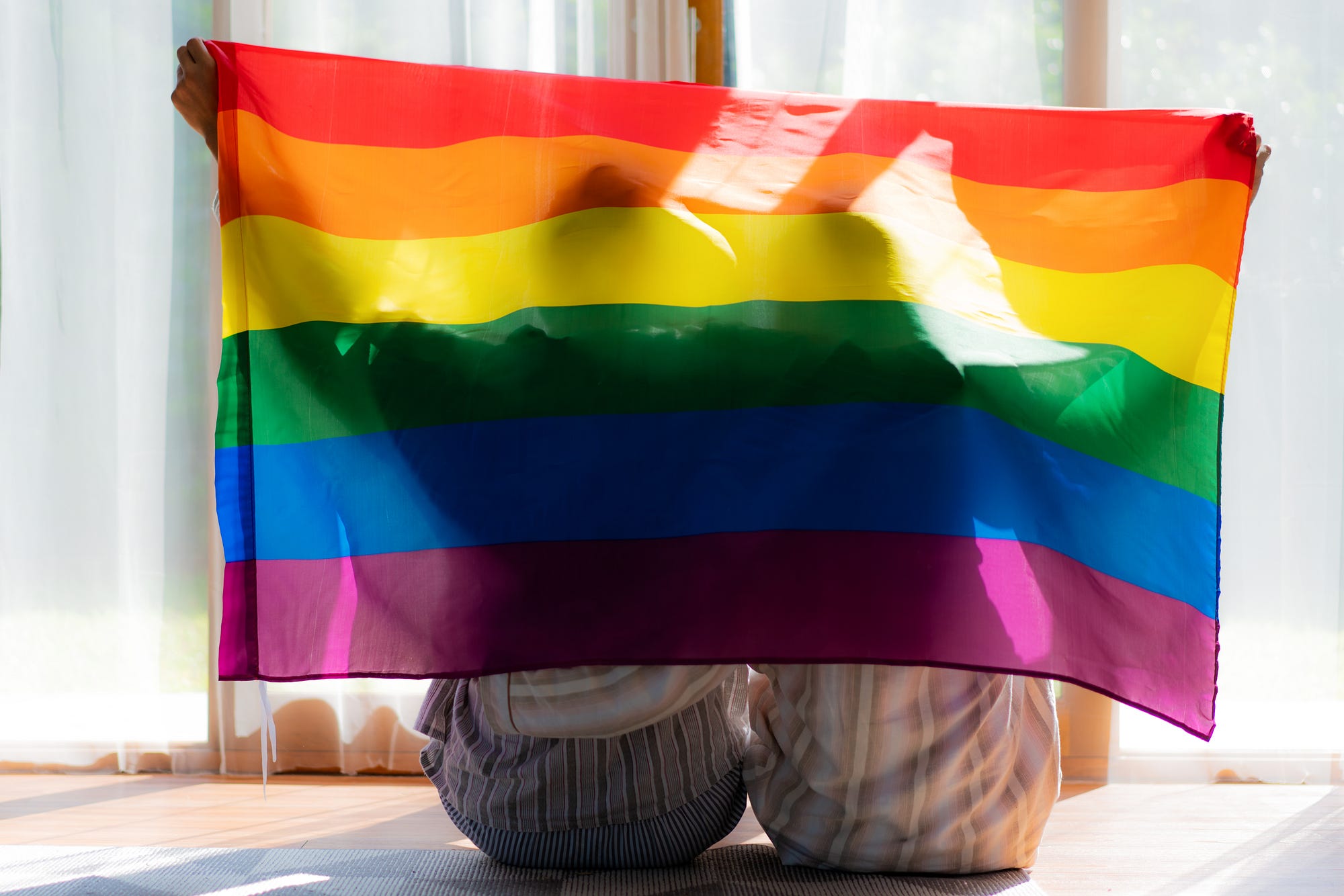
It’s my first date with a woman, and somehow, it’s 85 degrees in San Francisco. At least, I think it’s a date. Feeling weird that I can leave the house without a jacket, I am hit with a pang of nervousness I haven’t felt since junior high — what if this is just friends hanging out? I don’t want to be presumptuous. But after flirting at work and a weekend camping, I really, really want it to be a real date.
After eating banh mi sandwiches, we cram into the corner of a small venue for an open mic where people get onstage to share their grief — cry, yell, sing. The audience is there to bear witness to it. The air is thick with heat and I can’t stop looking at her. We leave early and go to a dive bar with stale popcorn where I get the courage, doled out like a scoop of ice cream, to tell her that I have the biggest crush on her. And she tells me that she has a crush on me, too. It is a date.
It’s hard to know where to start when you’re 31 years old and you acknowledge for the first time to yourself that you’re queer. That you’re falling in love with a woman, and it feels like the most natural act. That you could have married your ex-boyfriend and never known what you were missing. That all of those intimate, complicated, relationship-like intimacies minus the sex that you shared with your best female friends make a little more sense now.
And it’s another thing to mourn all of those penises you’ve touched that you wish you hadn’t. And then what do you do with the confusion of it all — of in fact having been attracted to men for most of your life, but never having considered your attraction to women while growing up in a conservative, strict household — not even considering it as an option. Now, I struggle to make sense of it by labeling these feelings. To define it in a nice, neat box. Bisexual. Pansexual. Queer.
I had considered myself straight for so long; there were many things I had never encountered when dating someone of the same sex. I had hid behind that privilege.
As we keep going on dates, I find myself spending more time considering the compulsory heterosexuality I — and so many others — experience in our patriarchal and heteronormative society. How different would my life have been if I grew up knowing I could love boys and girls. If I knew that maybe the reason I was enamored with my neighbor’s older sister’s blonde arm hair and small mouth wasn’t because I thought she was cool — but because I thought she was cute.
I texted my mom one day to inform her I had a girlfriend. My sister had dated a woman a few years ago, and that resulted in parental tears, so I figured coming out via text might be the best way to avoid a scene.
“I don’t understand why you can’t just be best friends?” my mom asked. I told her you usually don’t want to make out with your best friend.
Most other people in my life were supportive. My dad told me he didn’t care who I dated — that he just wanted me to be happy. My three siblings basically said, “Cool.” And when I told my friends, no one was surprised. While I hadn’t officially come out until then, they had known about my attraction to women in my late twenties. The process to get to this point had been coming for awhile. For years, I’d switch my dating apps to view both men and women while drunk. I even went on dates with women to test the waters — but after going on a few with no one I liked, I questioned whether I was actually gay.
However, I also considered a threesome I had a few years ago, and during that experience, I felt more interested in hooking up with the woman than the man. Basically, it was all confusing. It was a process and it wasn’t until I had real feelings for my girlfriend that I was comfortable putting a label on it.
Once I decided to embrace my new identity, I realized the privilege I’d experience as a mostly-straight woman of not needing to discuss my sexual orientation — that it was just assumed. At work, the director of my team asked if I was dating any cute guys. I told her I actually had a girlfriend now. “Oh, I could see that,” she said — whatever that means. And with every new co-worker who joined the team, I would slip “my girlfriend” into a sentence in some way or another.
The concept of firsts in my thirties was insane and beautiful.
I had considered myself straight for so long; there were many things I had never encountered when dating someone of the same sex. I had hid behind that privilege. I had never thought about the attention that kissing my partner in a male-crowded bar in a small town might warrant. Or the need to research a country’s view on same-sex couples before booking a vacation there with my partner. I suddenly was the recipient of too personal, often offensive comments like: So, how do lesbians have sex? / I don’t believe you two are actually dating. Prove it. Kiss. / Where I’m from isn’t really okay with gay people, but I’m totally okay with it. / This is every guy’s teenage fantasy — two lesbians in a hot tub. And while the intent was often not malicious, those are comments that stick with you in your brain like foxtails.
And then there were the firsts I suddenly was experiencing, when I thought I had done all of this already. My first girlfriend. My first time holding hands with a woman. My first time falling in love with a woman. The concept of firsts in my thirties was insane and beautiful. We dated for a few weeks before we decided to be exclusive and booked future trips together — it was fast and sweet. My partner told me there was a grand unveiling ceremony for lesbians for the first time you saw each other naked: You had to very seriously unveil each other’s vaginas.
I did love that man who moved to Idaho and broke my heart, and I also love my girlfriend. Did it evolve or was it always true?
As funny as it was, residing in this space is also lonely. There’s a lack of shared experience among my friends, even the closest ones, because there has to be. They’ve known me as one way our entire friendship — and to introduce this new part of myself is perhaps jarring. Perhaps they’ve felt that I was hiding something. Or that I’ve changed. And I have — you can’t rethink your romantic and sexual history, 15 years of it, without changing.
You can’t quickly mold your discoveries into a story that fits into a packaged box of sexual identity so that your friends and family can feel sure that they still know you.
The truth is, it can’t be done. It isn’t black or white. I did love that man who moved to Idaho and broke my heart, and I also love my girlfriend. Did it evolve or was it always true? How do we thread something new into our identities that may have always been there before, under the surface? How do you make sense of ignoring a part of yourself for so long?
I also have to consider that I’ve missed out. That I’ve wasted time, trying to fall in love with every man in San Francisco for way too many years. There’s a sense of loss. The loss of my first kiss, the loss of the experiences I’ve had with men, or rather the presence of them. Can I mourn the loss of time — the relationships and loves I could have had with women if I would have met this part of myself sooner?
I brought my girlfriend home for Christmas this year, to meet my conservative family. I wondered if my Catholic grandma would acknowledge her as my partner, or just as my friend. If my dad would make a Trump reference, if my mom would cry, if my siblings wouldn’t know what to say. If we’d be allowed to sleep in the same bed.
Instead, my father gifted her a knife with her name engraved on it and taught her to build a fire, my mother had us sleep in the same bed, my siblings knew just what to say, and having Christmas morning with a partner, this thing I wanted every holiday since adulthood, looked much different than I had imagined, and was also more special, too.
So I don’t know why, at 31, I’ve found this part of me and come out. Perhaps it’s because I couldn’t ignore it any longer. Perhaps it’s because I fell in love. Perhaps I finally got the courage.
So yes, 31 and queer. I wish it rhymed and it doesn’t — but it does have a solid certainty to it.



